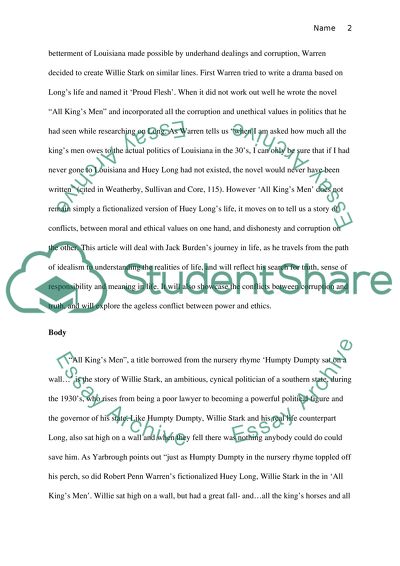Cite this document
(“English All the Kings Men Essay Example | Topics and Well Written Essays - 2750 words”, n.d.)
Retrieved from https://studentshare.org/literature/1563434-english-all-the-kings-men
Retrieved from https://studentshare.org/literature/1563434-english-all-the-kings-men
(English All the Kings Men Essay Example | Topics and Well Written Essays - 2750 Words)
https://studentshare.org/literature/1563434-english-all-the-kings-men.
https://studentshare.org/literature/1563434-english-all-the-kings-men.
“English All the Kings Men Essay Example | Topics and Well Written Essays - 2750 Words”, n.d. https://studentshare.org/literature/1563434-english-all-the-kings-men.


